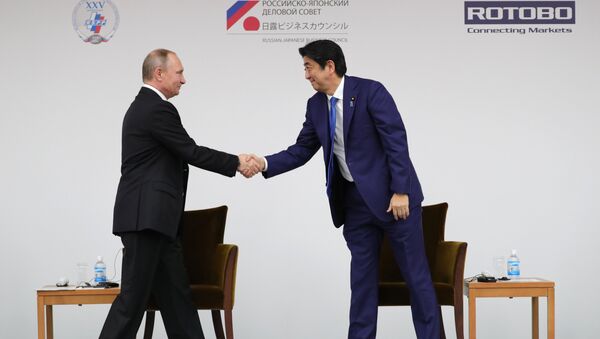Shimotomai Nobuo, a professor with the Japanese Hosei university, believes that the Russian-Japanese relationship was "reset" by the December 15-16 meeting in Japan.
"Prime Minister Shinzo Abe and President Vladimir Putin have personally witnessed [the beginning of the consultations on joint economic activities], that is why the results can be expected," Nobuo told Sputnik.
Toshihiko Ueno, a professor specializing in Russian studies at the Sophia University in Tokyo, agreed that the talks were a major step forward but refrained from making any detailed predictions.
"If the meeting's goal was to restore the close relations between Russia and Japan and to return the relationship to the 2013 level, then it is possible to say that the goal has been achieved… There has been progress, but it is too early to speak about anything concrete," Ueno told Sputnik.
According to the professor, the two sides will encounter many organizational issues in the process of establishing joint economic activity on the islands.
"If joint economic ventures are created, it is not very clear what should be done about the value-added tax," Ueno suggested as an example of one such obstacle.
The experts mentioned the importance of compromises in Russian-Japanese relations, especially in everything that concerns the delicate matter of the territorial dispute.
"If Japan agrees to the joint economic activity on the territory of the Kuril Islands, this will amount to the indirect admission of Russian sovereignty over them," Li Yonghui, a researcher at the Institute of Russian, Eastern European and Central Asian Studies of the Chinese Academy of Social Sciences, told Sputnik.
According to Yonghui, the joint economic activity agreement was an attempt to altogether bypass the territorial dispute.
Ueno agreed that Japan might have to compromise but added that, despite the complexity of Japan's attitude toward the idea of the joint economic activity, Abe's initiative on that matter was a sign that the issue would not be abandoned.




